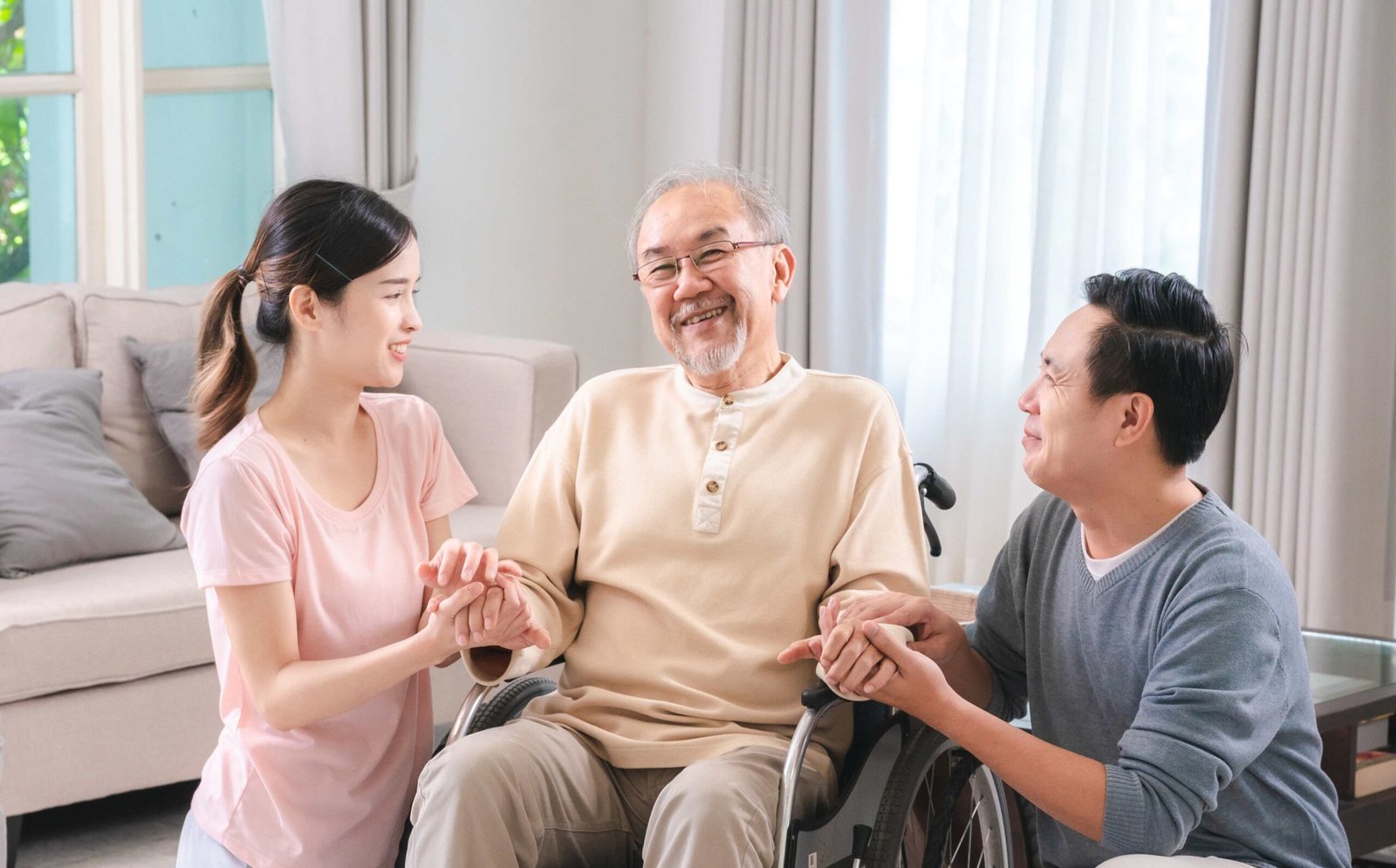Understanding Hospice Care
Hospice care is a compassionate approach designed to provide comfort and support to individuals facing terminal illnesses, as well as their families. Here, we will outline the differences between hospice and palliative care and highlight the essential components of hospice care.
Differentiating Between Hospice and Palliative Care
It is essential to differentiate between hospice care and palliative care to make well-informed decisions about the care that aligns best with the patient’s needs. Both hospice care and palliative care aim to improve the quality of life but serve different patient needs and timelines.
| Care Type | Description | Eligibility |
|---|---|---|
| Hospice Care | Hospice care begins when a patient receives a diagnosis indicating a terminal illness with an expectancy of less than six months to live (NCBI Bookshelf). This care focuses on providing comfort rather than attempting curative treatments. | Terminal illness with life expectancy < 6 months. |
| Palliative Care | Palliative care can be provided at any stage of an illness, even alongside curative treatment. This approach focuses on alleviating symptoms and improving the overall quality of life for patients with serious, chronic, or life-threatening illnesses. | Any stage of serious illness. |
Components of Hospice Care
Hospice care involves a comprehensive, interdisciplinary approach to meet the diverse needs of terminally ill patients and their families. Here are the primary components:
Interdisciplinary Team
Hospice care services are typically provided by a dedicated team of professionals including physicians, nurses, caregivers, spiritual counselors, social workers, and therapists. This team aims to address the physical, emotional, and spiritual needs of patients and their families.
| Professional | Role |
|---|---|
| Physicians | Oversee medical care and symptom management. |
| Nurses | Provide continuous care and coordinate treatment plans. |
| Caregivers | Assist with daily activities and personal care. |
| Spiritual Counselors | Offer spiritual guidance and support. |
| Social Workers | Address emotional and psychological needs. |
| Therapists | Offer physical, occupational, and complementary therapies. |
Key Services
Hospice care encompasses various services aimed at maximizing patient comfort and quality of life.
- Pain and Symptom Management: Focuses on alleviating physical discomfort.
- Emotional and Spiritual Support: Provides guidance and comfort.
- Medication Management: Ensures appropriate use of medication.
- Therapy Services: Includes physical and occupational therapy to maintain or improve functional abilities.
Levels of Care
At Serenity Hospice Care, we offer various levels of in-home hospice care to cater to the evolving needs of our patients:
| Level of Care | Description |
|---|---|
| Routine Care | Regularly scheduled visits by care team members. |
| Continuous Care | Intensive care provided during periods of crisis. |
| General Inpatient Care | Short-term care in a hospital or inpatient facility for acute symptom management. |
Hospice care at home offers several benefits such as familiarity and comfort, a personalized care environment, reduced stress and anxiety, flexibility, and continuity of support. By understanding these components, families can make informed decisions and choose the best care option for their loved ones.
For more on the benefits of hospice care, read our article on why choose Serenity Hospice Care.
The Importance of Quality of Life
At Serenity Hospice Care, we prioritize enhancing the quality of life in hospice care for both patients and their families. Our commitment is to provide expert medical care, pain management, emotional, and spiritual support tailored to individual needs.
Enhancing Patient Comfort
Patient comfort is a fundamental aspect of hospice care. By managing pain and other distressing symptoms effectively, we aim to improve the overall well-being of our patients. According to the NCBI, hospice care offers comprehensive symptom management, ensuring that patients experience minimal discomfort during their final stages of life.
Our approach includes:
- Pain Management: Using medications and therapies to alleviate pain.
- Symptom Control: Addressing symptoms such as nausea, breathlessness, and fatigue.
- Comfort Measures: Providing physical adjustments like positioning and pressure relief.
| Symptom | Management Strategy |
|---|---|
| Pain | Medications, physical therapy |
| Nausea | Anti-nausea medications, dietary adjustments |
| Fatigue | Energy conservation techniques, rest periods |
For more on the benefits of hospice care, visit our page on benefits of hospice care.
Addressing Emotional Needs
In addition to physical comfort, addressing the emotional needs of our patients is crucial in enhancing their quality of life. Hospice care at Serenity Hospice offers emotional support not just for patients, but also for their families. The interdisciplinary team comprising social workers, chaplains, and counselors work collaboratively to provide holistic care (NCBI).
Key elements include:
- Counseling Services: Offering one-on-one and group counseling sessions.
- Spiritual Support: Providing chaplain services for spiritual care.
- Emotional Support for Families: Helping families navigate the emotional challenges of end-of-life care.
Providing comprehensive and tailored emotional support can significantly enhance the quality of life for both patients and their loved ones. For more information on emotional support, visit our article on emotional support in hospice care.
To ensure patient preferences are respected, we believe in early planning. The ideal time to plan end-of-life care is at or near the time of the terminal diagnosis. This approach guarantees that individual choices are maintained, thus improving the overall quality of life.
At Serenity Hospice Care, we are committed to enriching the lives of our patients and their families through compassionate, patient-centered care. Discover more about our comprehensive hospice services at why choose serenity hospice care.
Choosing Serenity Hospice Care
In this section, we’ll explore the exceptional services provided by Serenity Hospice Care that emphasize the quality of life in hospice care.
Comprehensive Hospice Services
At Serenity Hospice Care, we offer a broad spectrum of hospice services designed to cater to the various needs of our patients and their families. Our interdisciplinary team of professionals includes physicians, nurses, caregivers, spiritual counselors, social workers, and therapists. This dedicated team aims to address the physical, emotional, and spiritual needs of patients during their end-of-life journey.
| Service | Description |
|---|---|
| Emotional Support | Emotional support is an essential component of our hospice care, helping patients and families cope with feelings of grief, anxiety, and stress. Discover more about our approach to emotional support in hospice care. |
| Symptom Management | We specialize in effective pain and symptom management to ensure comfort and improve the quality of life. This includes administration of medicines and use of non-medical therapies. |
| Therapy Services | Therapy services help maintain or improve patients’ functional abilities, crucial for their overall happiness. |
We provide different levels of care to address the evolving needs of our patients, including routine care, continuous care, general inpatient care, and respite care. These services ensure that patients receive tailored and appropriate support throughout their journey.
Personalized In-Home Care
For many, the comfort of receiving in-home hospice care makes a significant difference. Serenity Hospice Care brings comprehensive hospice support into the home, creating a personalized care environment that reduces stress and fosters a sense of autonomy and emotional connection.
Key benefits of our in-home hospice care include:
- Familiarity and Comfort: Patients remain in a familiar and comforting environment, which can significantly reduce anxiety.
- Personalized Care: Our care plans are tailored to the unique needs and preferences of each patient, ensuring they receive the best possible support.
- 24/7 Accessibility: Our care teams are available around the clock, offering continuous support and peace of mind.
- Flexibility and Independence: Patients have the flexibility to engage in activities and make decisions, preserving their sense of independence.
By providing home-based hospice support, Serenity Hospice Care enables individuals and their families to navigate the end-of-life journey with dignity and peace. For more insights on the benefits of choosing our services, visit our page on why choose Serenity Hospice Care.
Considering the importance of palliative care and the ongoing support necessary for both patients and family caregivers, Serenity Hospice Care ensures that the entire caregiving experience is as seamless and supportive as possible. Learn more about our comprehensive approach to hospice care for families.
Strategies for Effective Care
When discussing the importance of quality of life in hospice care, effective care strategies play a vital role. At Serenity Hospice Care, we implement structured approaches to ensure our patients receive comprehensive and compassionate care.
Interdisciplinary Team Approach
The interdisciplinary team (IDT) approach is central to our care model. Hospice care services are provided by a dedicated team of professionals including physicians, nurses, caregivers, spiritual counselors, social workers, and therapists. This diverse team aims to address the physical, emotional, and spiritual needs of patients and their families during the end-of-life journey.
| Team Member | Role | Benefit |
|---|---|---|
| Physician | Oversees medical care | Ensures appropriate and timely medical interventions |
| Nurse | Provides day-to-day patient care | Monitors and manages symptoms and medication |
| Caregiver | Assists with daily activities | Improves patient comfort and hygiene |
| Social Worker | Offers emotional and social support | Helps with resource navigation and counseling |
| Therapist | Delivers complementary therapies | Reduces pain and enhances well-being (NCBI) |
We assess the patient’s quality of life to inform the plan of care (NCBI Bookshelf). This collaborative effort ensures each aspect of the patient’s and family’s needs are comprehensively addressed, resulting in a streamlined and personalized care experience.
End-of-Life Discussions
End-of-life discussions are a crucial component of quality care. These dialogues involve transparent and compassionate communication between our team, patients, and their families, addressing concerns, expectations, and planning for future care.
Key elements of effective end-of-life discussions:
- Early Initiation: Starting conversations early allows for thorough discussion of preferences and medical directives.
- Personalized Care Plans: Tailoring care plans based on individual needs and wishes.
- Supportive Environment: Providing a compassionate space for open dialogue.
- Continuous Reassessment: Regularly revisiting and adjusting care plans as conditions change.
These discussions ensure that patients and families are well-informed and aligned with the care strategy, enhancing trust and satisfaction with the care provided. Visit our dedicated page for more information on hospice care for families.
Incorporating these strategies ensures that Serenity Hospice Care remains committed to prioritizing the quality of life for our patients during their most challenging times. For additional resources and guides, be sure to check out our in-home hospice care and palliative care services.







